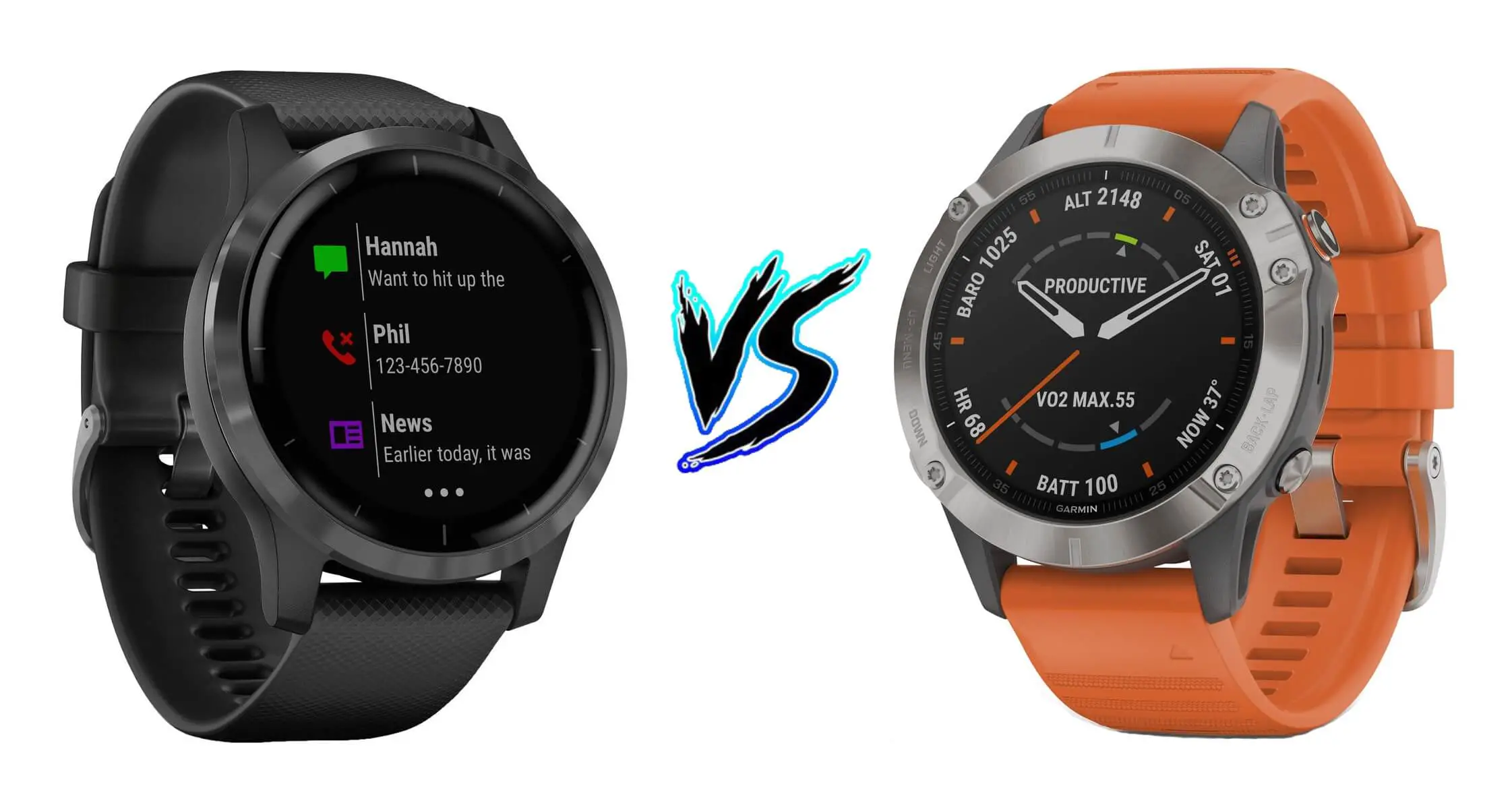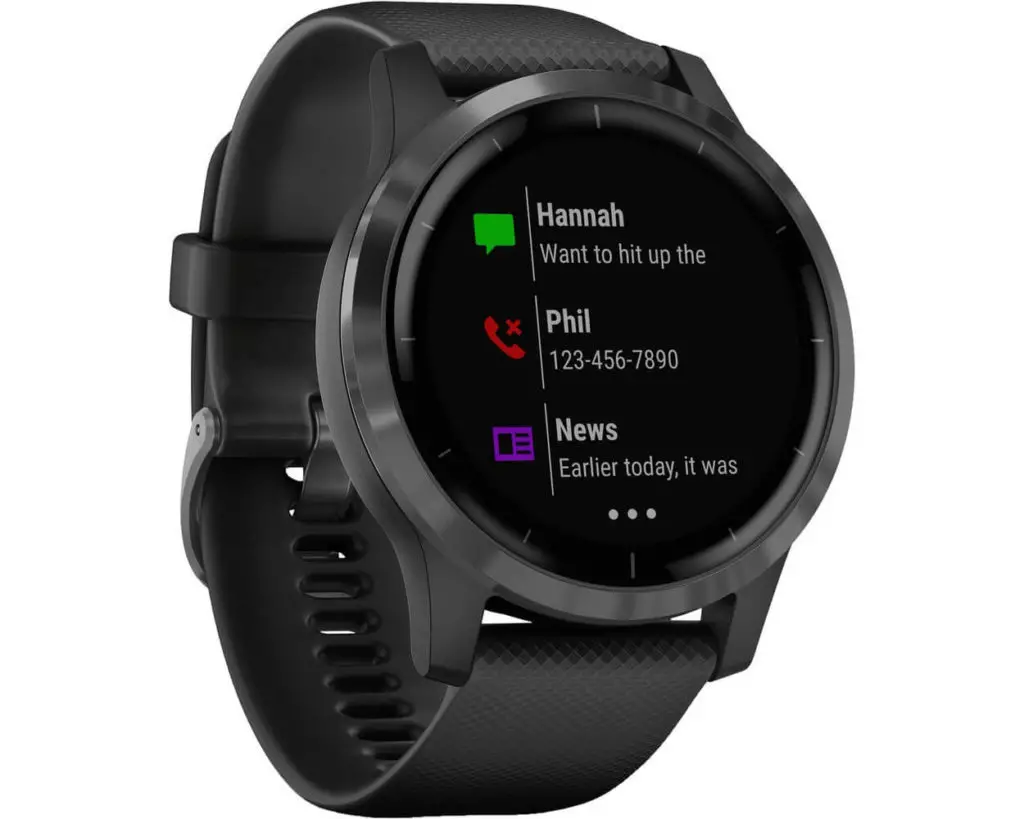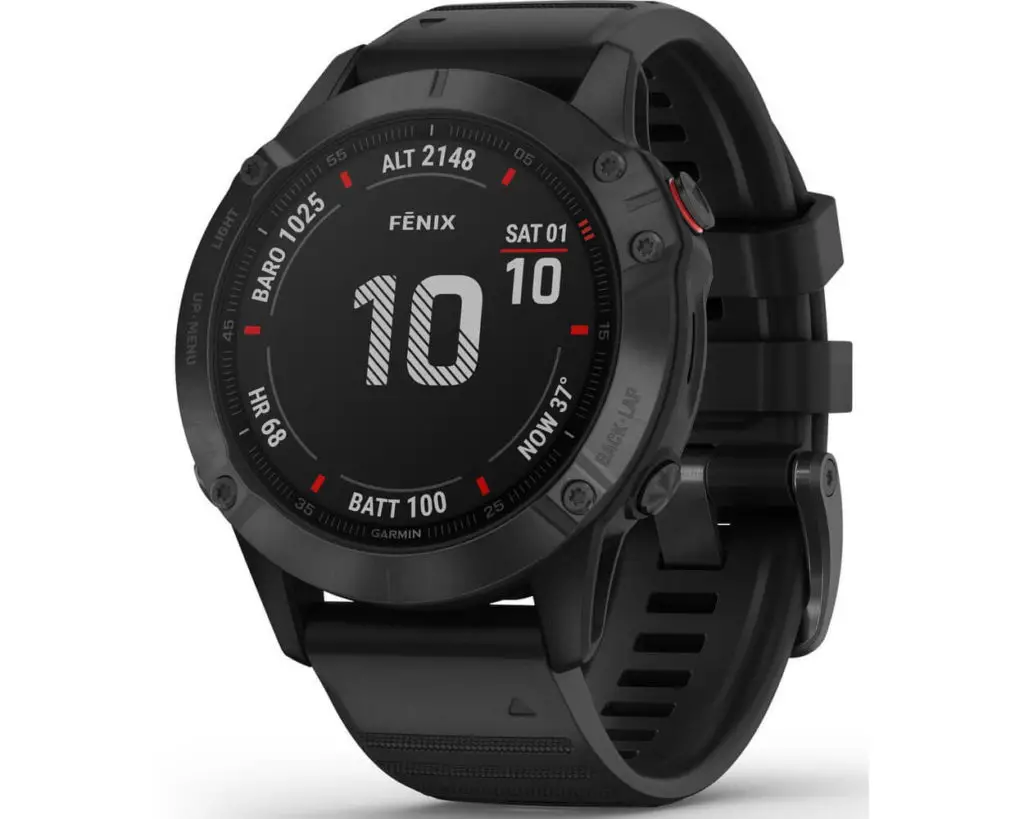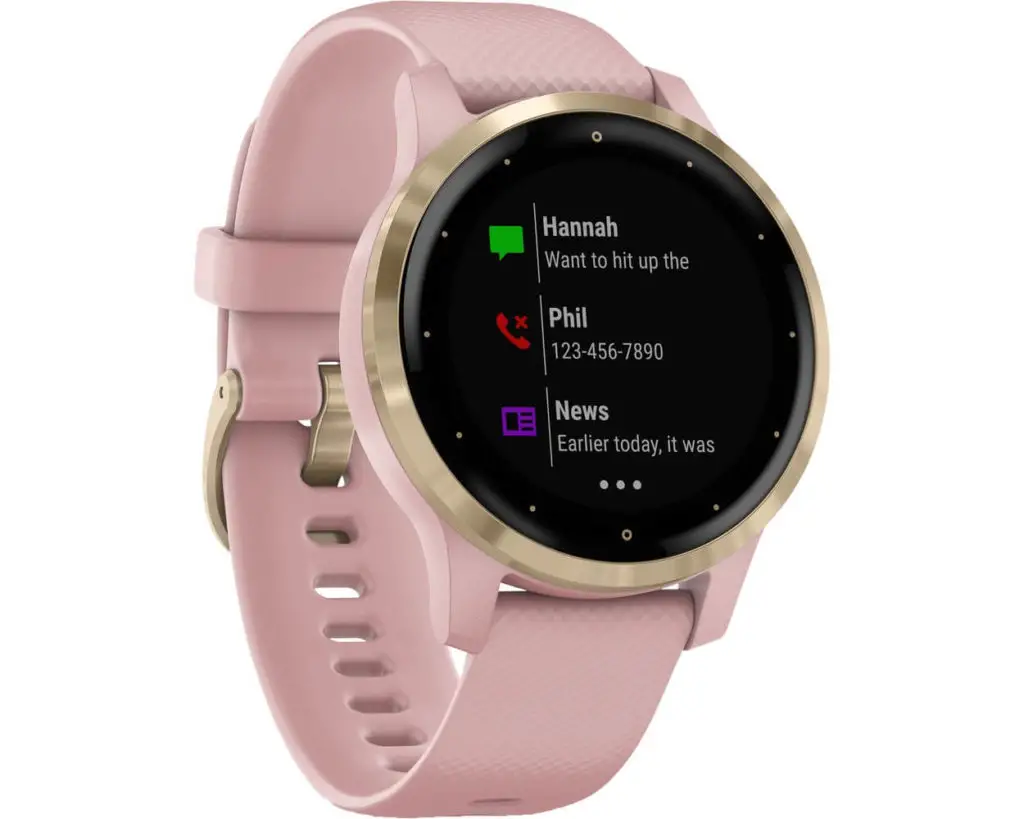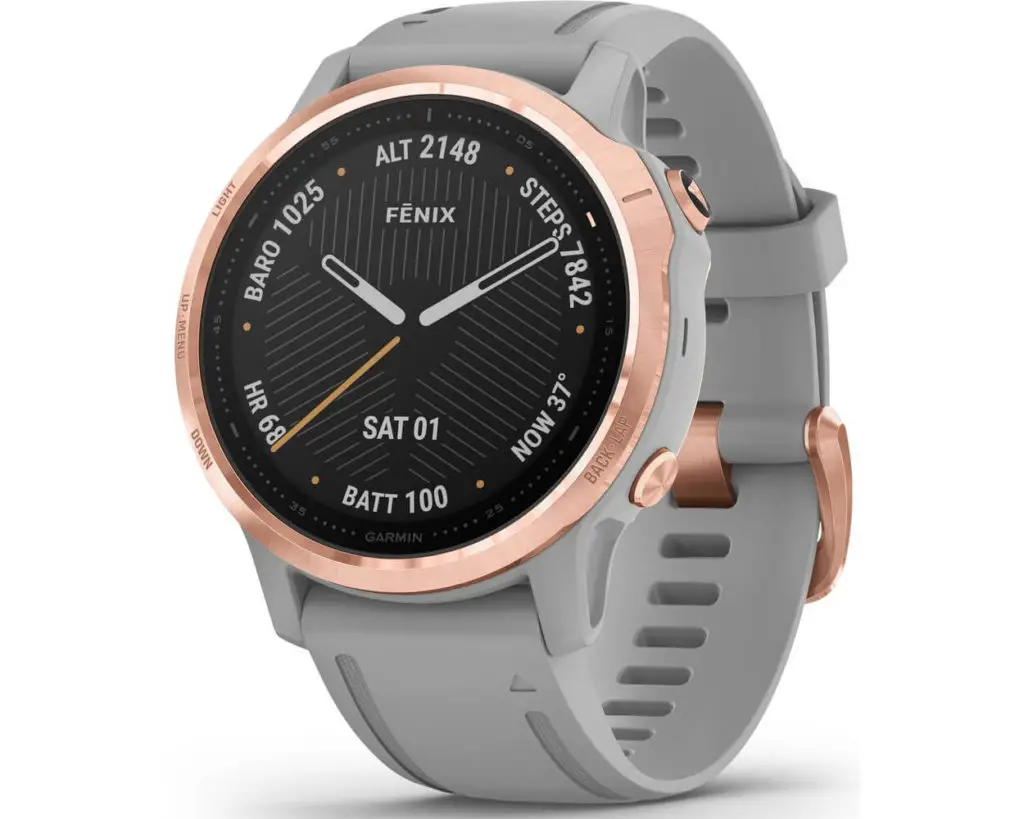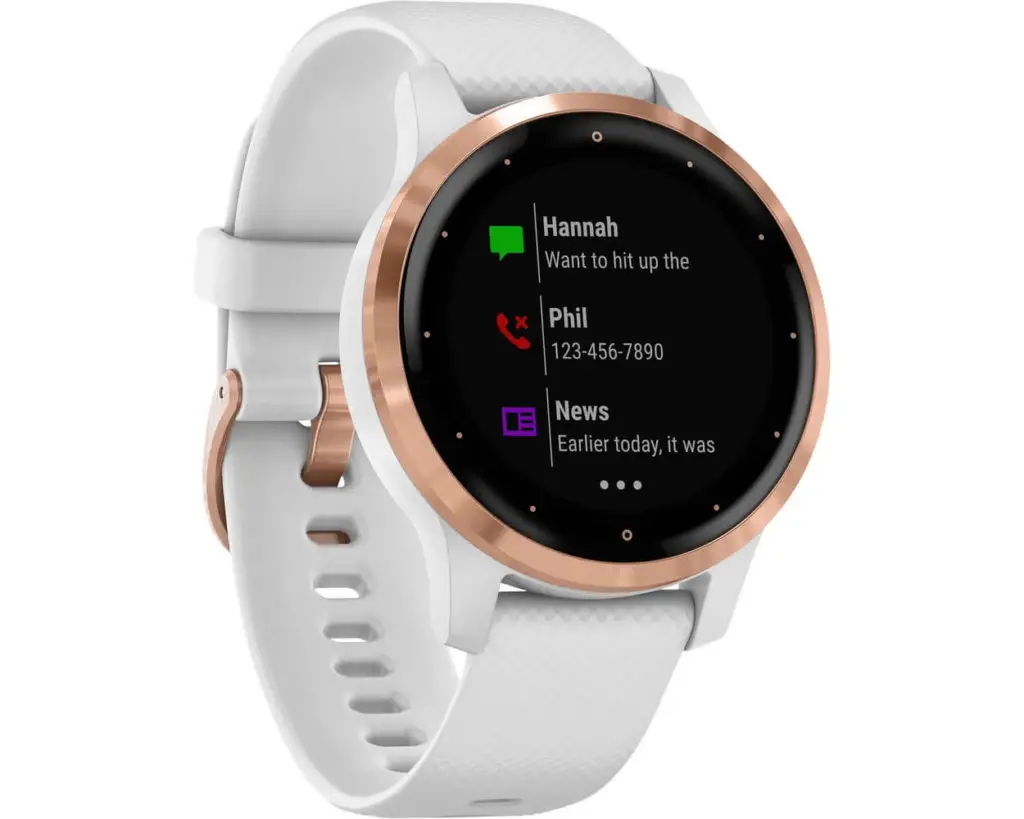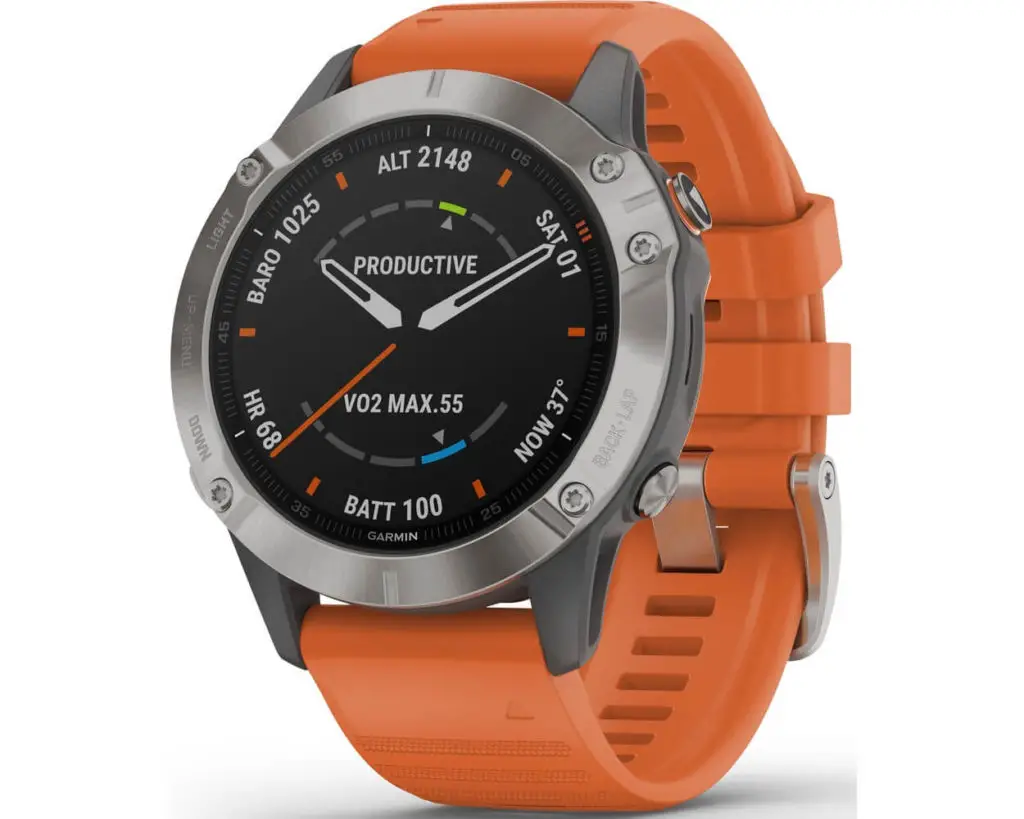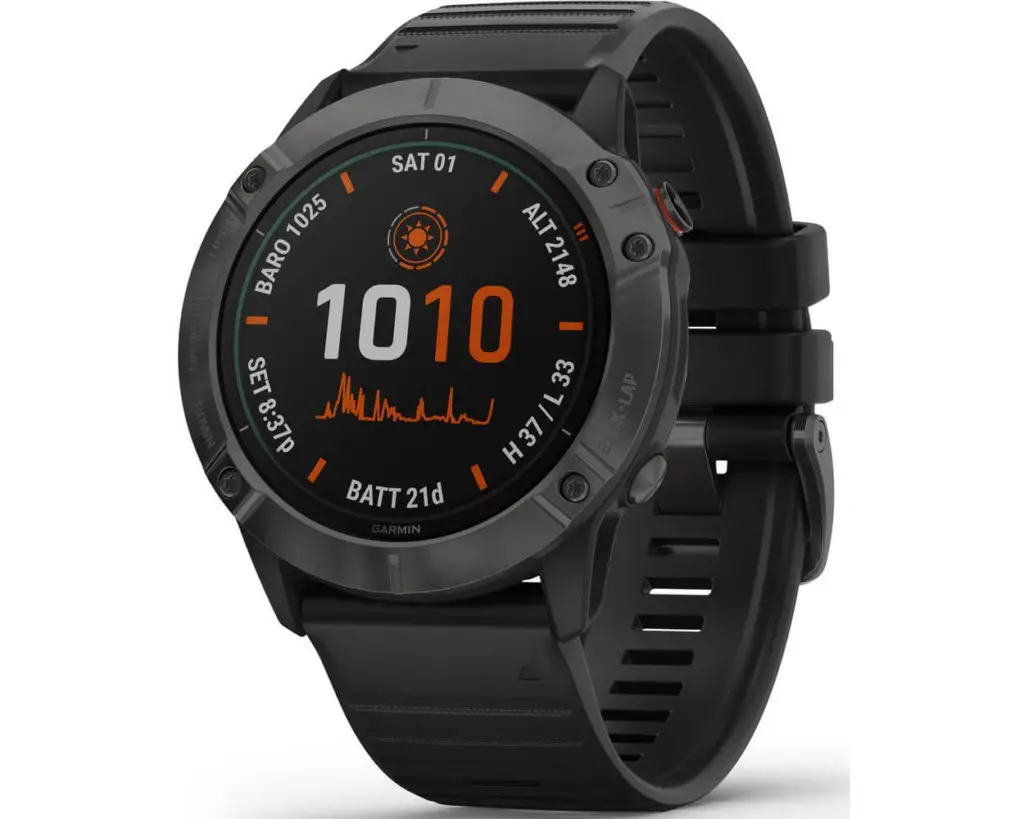This is a quick and simple product comparison between the Garmin Vivoactive 4 vs Garmin Fenix 6 Pro.
They are both extremely versatile GPS watches that can track a wide range of fitness activities and sports modes. However, there are some key differences that we will make explicitly clear in this post.
To do this, we will highlight all the the key similarities and all the key differences between the two watches. We will also provide a full list of the sports modes that each watch offers, together with some buying tips to help you make the right decision.
Let’s get this party started with a high level breakdown of the most important differences.
What are the main differences between the Vivoactive 4 and the Fenix 6?
- The Vivoactive 4 has a touchscreen, whereas the Fenix 6 uses buttons to work the watch.
- The Fenix 6 tracks open water swimming and it has a triathlon mode.
- The Fenix 6 has significantly more running specific features.
- The Fenix 6 has TOPO map and Ski Map technology which is missing from the Vivoactive 4.
- The battery life of the Fenix 6 is insanely long, and it has power management features.
- The Vivoactive 4 is a lot cheaper than the Fenix 6, and it has more than enough features for most people.
- The Fenix 6 can track 10 extra sports/activity modes in total.
- There is a version of the Fenix 6 that has solar charging functionality.
Garmin Vivoactive 4 vs Fenix 6 - Key Similarities
Vivoactive 4
Fenix 6 Pro
Stryd + RunScribe
Stryd + RunScribe
260x260px
260x260px
Vivoactive 4 vs Fenix 6 - Key Differences
Vivoactive 4
Fenix 6 Pro
Less Expensive
More Expensive
Up to 500 Songs
Up to 2000 Songs
72 Hours
150 Hours
48 Days
Fenix 6X Pro Solar Only
18 Hours
36 Hours
Up to 8 Days
Up to 14 Days
20
30
Reasons To Choose The Vivoactive 4
It has a touchscreen - Vivoactive 4
This is definitely one of the biggest differences between the Vivoactive 4 and the Fenix 6. While the Fenix 6 relies on a button interface to interact with the watch, the Vivoactive 4 relies predominantly on the touchscreen.
In some respects, this makes the Vivoactive 4 function a bit better as a standard smartwatch. If you’re used to working with a smartphone, transitioning to a touchscreen watch is pretty seamless.
However, sports enthusiasts (especially runners) are quick to point out that a button only interface is often a bit more practical when you are actively engaged in your sports or fitness activity of choice.
It's a lot more affordable - Vivoactive 4
The price of the Vivoactive 4 is literally 50% less than the price of the Garmin Fenix 6 Pro. Morever, there are several version of the Fenix 6, which are almost 3 times the price of the Vivoactive 4 (the Fenix 6 Pro Solar Titanium to be precise.
In other words, you can save yourself a fair bit of cash if you forego some of the finer features exclusive to the Fenix 6, and settle with the Vivoactive 4 which is still a very well rounded activity tracker with excellent sports tracking features as well.
It has more than enough features for most people
I say this, because the Vivoactive 4 really does have you covered from a sports and activity tracking perspective. Fitness enthusiasts, runners, cyclists, rowers, golfers and even snowboarders will all be well served by this watch. In fact, I would go so far as to say that it’s the most well-rounded activity tracker in the world right now.
Of course the Fenix 6 gives you all the same core features, but the extra features in the Fenix 6 come at a fairly steep price. You just have to ask yourself if you really need the extra technology that the Fenix 6 brings to the table.
Reasons To Choose The Fenix 6
Open Water Swimming + Triathlon Mode
From a sports perspective, the addition of open water swimming and a triathlon tracking make the Fenix 6 significantly more attractive for endurance athletes.
Garmin have produced quite a few triathlon watches in their time. At the moment, the Fenix 6 sits right alongside the Forerunner 945 as their best triathlon watch to date.
Much Longer Battery Life & Power Management Options
The Vivoactive 4 is no slouch when it comes to battery life, but the Fenix 6 Pro is an absolute beast. It actually goes above and beyond simple battery life improvements. The Fenix 6 also gives you power management options (kinda like a smartphone) which puts it in a whole new league from a power perspective.
The bullet points below (derived from the Fenix 6 Pro) should give you a good understanding of the battery capabilities of the Fenix 6.
- GPS Battery Life – 36 Hours
- Max Battery GPS – 72 Hours
- UltraTrac GPS – 150 Hours
- Smartwatch Battery – 14 Days
- Expedition GPS Mode – 28 Days
- Battery Saver Watch Mode – 48 Days
It's Better For Runners
There are 3 main reasons the Fenix 6 is the better running watch.
- It supports Garmin Advanced Running Dynamics
- It supports Garmin Running Power
- It relies on buttons rather than a touchscreen to work the watch.
Now, you might not be sure what Garmin Advanced Running Dynamics is all about. The bullet points below explain the 6 main stats which the Fenix 6 supports, but the Vivoactive 4 does not.
- Ground Contact Time – The time your foot spends on the ground with each stride.
- Ground Contact Balance -Symmetry between left and right foot.
- Vertical Oscillation – degree of ‘bounce’ in your running motion.
- Vertical Ratio – the cost-benefit ratio with stride length.
- Cadence – Real time cadence stats displayed on your watch.
- Stride Length – Real time stride length stats displayed on your watch.
Collectively, these elements make the Fenix 6 a better choice for running specialists. Also, if you want to know more about the best Garmin watches for running specifically, this round up has more details.
TOPO Maps & Ski Maps - Fenix 6
If there’s one area where the Fenix range is way ahead of the competition, it’s the topographical map technology.
By investing in the Fenix 6, you essentially unlock advanced route navigation capabilities, built on 3D topographical maps that display in real time. This makes the Fenix 6 a lot more desirable for trail runners, hikers, mountain bikers and mountaineers, all of whom can benefit from the TOPO map technology.
In addition, the Fenix 6 also support SKI Maps. This gives you a 3D representation of the SKI resort that you’re visiting, together with an indication of the slope rating (green, blue, red, black) and a general overview of how to access all the slopes of a particular resort. In other words, if you’re into snow sports, you will be well served by the Fenix 6, because of the built-in SKI Maps. The only extra thing worth mentioning is that you have to choose the Fenix 6 Pro, the Fenix 6 Sapphire or the Fenix 6 Solar in order to gain access to this feature (it’s missing from the base model).
Bigger Music Storage Capacity - Fenix 6
This one is pretty simple. The Fenix 6 can store about 4 times as much music as the Vivoactive 4.
- Vivoactive 4 music storage – Up to 500 songs
- Fenix 6 Pro/Sapphire music storage – Up to 2000 songs
Garmin PacePro & Garmin ClimbPro
Garmin ClimbPro gives you a better understanding of all the upcoming climbs along your training route (when running our cycling outdoors). It detects all the climbs, and makes all the important information available to you as you approach it. This includes:
- Distance remaining in the climb
- Ascent remaining in the climb
- A chart with a profile of the climb
- Average gradient for the climb
Garmin’s PacePro technology is designed to help you achieve your target time during training and races. It’s a bit like having a pacemaker built into your watch, for the entirety of the race.
Also, it’s worth mentioning that Garmin’s PacePro technology factors in both uphill and downhill sections of the course, setting a slower target pace during uphill sections and a faster target pace during downhill sections. This is a nice touch. Factoring in the contours of the route helps the watch set an achievable pace during challenging sections of a course.
It's as good as it gets from Garmin
The Fenix range has always been the pioneer of Garmin’s product line-up, and they have continued this lineage with the Fenix 6 range.
I was super impressed with the Forerunner 945 when it was released earlier this year, but Fenix 6 has ultimately regained the throne from the FR945.
Long story short, the Fenix 6 is the best multisport watch from Garmin at this moment in time. Also, it should retain this status for a fairly solid chunk of time, so it’s a pretty safe bet if you just want the best that Garmin has to offer, with every single tech feature baked into the watch.
Vivoactive 4 vs Fenix 6 - Sports Modes
| Vivoactive 4 - Sports Modes | Fenix 6 Pro - Sports Modes |
|---|---|
| 01) Strength Training | 01) Strength Training |
| 02) Cardio Training | 02) Cardio Training |
| 03) Elliptical Training | 03) Elliptical Training |
| 04) Stair Stepping | 04) Stair Stepping |
| 05) Floor Climbing | 05) Floor Climbing |
| 06) Indoor Rowing | 06) Indoor Rowing |
| 07) Yoga | 07) Yoga |
| 08) Running | 08) Running |
| 09) Treadmill Running | 09) Treadmill Running |
| 10) Indoor Track Running | 10) Indoor Track Running |
| 11) Skiing | 11) Skiing |
| 12) Snowboarding | 12) Snowboarding |
| 13) Cross Country Skiing | 13) Cross Country Skiing |
| 14) Stand Up Paddleboarding | 14) Stand Up Paddleboarding |
| 15) Rowing | 15) Rowing |
| 16) Cycling | 16) Cycling |
| 17) Indoor Cycling | 17) Indoor Cycling |
| 18) Pool Swimming | 18) Pool Swimming |
| 19) Golf Mode | 19) Golf Mode |
| 20) Walking | 20) Walking |
| 21) Open Water Swimming | |
| 22) Triathlon Mode | |
| 23) Tactical | |
| 24) Jumpmaster | |
| 25) Kayaking | |
| 26) Mountain Biking | |
| 27) Swimming/Running | |
| 28) Climbing | |
| 29) Trail Running | |
| 30) Indoor Track Running |

